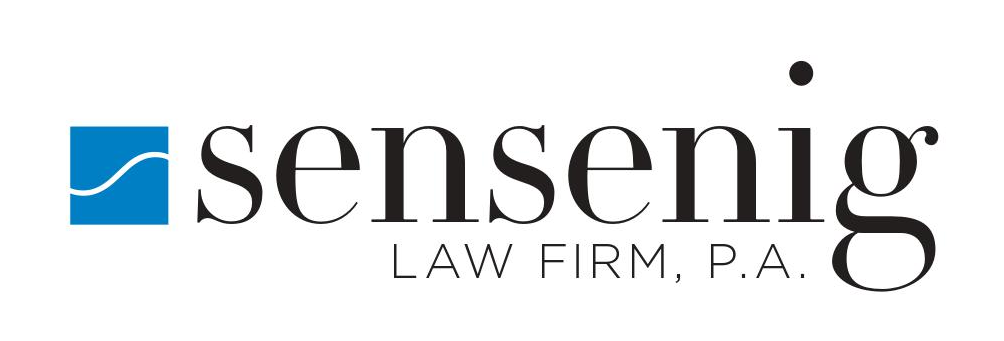Great news for employers in 2023! Starting August 1, 2023, the U.S. Department of Homeland Security’s Citizenship and Immigration Services (USCIS) has granted authorization to the U.S. Immigration and Customs Enforcement (ICE) for an "alternative document examination procedure." Additionally, a new and improved version of the Form I-9 is set to be released on the same date.
Read MoreDiscover the new standard for religious accommodations in the workplace. Learn how the recent Supreme Court ruling impacts your obligations as an employer and what constitutes "undue hardship." Stay informed to avoid legal risks and consult with an employment attorney for guidance.
Read MoreDiscover the new mandatory E-Verify requirements for Florida employers of 25 or more employees. Learn about the compliance deadline, penalties for non-compliance, and the complete overhaul of employment eligibility verification. Find out how to enroll in the Federal E-Verify system, ensure compliance, and avoid hefty fines. Act now to stay ahead of the July 1, 2023 deadline and avoid the risk of retroactive enforcement. Get expert guidance and support for navigating the E-Verify process. Contact us today for assistance with E-Verification in Florida.
Read MoreComplying with the Family and Medical Leave Act (“FMLA”) is notoriously treacherous, with opportunities to accidentally “interfere” with your employees’ leave – and thus invite equally treacherous litigation – at every turn.
Read More2023 must have the Federal Trade Commission (“FTC”) feeling particularly ambitious because on January 5, 2023, the FTC proposed a new rule – 16 CFR Part 910 (the “Rule”) – which would not just limit, but outright ban the enforcement of non-competition agreements nationwide.
Read MoreAs a part of its multi-year project to clarify the differences between an employee and an independent contractor, the Department of Labor (“DOL”) has issued yet another new set of standards for determining proper worker classification.
Read MoreOn September 30, 2022, Florida’s minimum hourly wage for non-exempt employees will rise from $10.00/hour to $11.00/hour. This raise is part of a multi-year schedule approved by Florida voters in November of 2020 that will see Florida’s minimum wage rise by $1.00 per year until September 30, 2026, when Florida’s minimum wage will ultimately settle at $15.00/hour.
Read MoreJust when you thought you would not have to review another COVID update from the Sensenig Law Firm, last week the U.S. Centers for Disease Control and Prevention (“CDC”) released an update to its guidance on dealing with the ongoing COVID-19 pandemic. The good news is that this latest update is a far cry from the litany of Excel spreadsheets and flowcharts the CDC has been issuing periodically for the past two years. This is good news for Florida business-owners as I think it is safe to say that following complex quarantine formulae was mental gymnastics. Rest assured that this time around the guidance is much more succinct.
Read MoreThe various federal agencies finally seem to be reading from the same page when it comes to COVID-19. Absent some special circumstances, the federal Center for Disease Control (“CDC”) no longer recommends masking – whether outside or indoors – and social distancing is requested at places, but not required. The Equal Employment Opportunity Commission (“EEOC”) has recently declared that COVID-19 is no longer in the “emergency stage,” and therefore new guidance is in order for what steps employers should or shouldn’t be taking.
Read MoreProperly classifying workers as either “employees” or “independent contractors” is difficult even in the best of circumstances, but it certainly doesn’t help when every administrative agency (the Department of Labor (“DOL”) vs. the IRS), every individual state (California vs. Texas; Florida vs. Massachusetts; etc.), and every presidential administration (Obama vs. Trump; Trump vs. Biden) has a different interpretation of the rules, or even a different set of rules altogether.
Read MoreThis past month, it seems like every branch of our government – from the President himself all the way down to school superintendents, and everyone in between – has imposed new (and often contradictory) COVID-19 health and safety protocols.
This has placed even the most conservative, safety-minded employers in an awkward, even impossible position. Do you comply with the Occupational Safety and Health Administration Emergency Temporary Standards (“OSHA ETS”) mandate requiring vaccines, or Florida’s recently enacted statute, banning such requirements? Is mandatory masking alright? What about vaccine cards?
Read MoreWe are sure that many of you heard that on September 9, 2021, President Joe Biden announced that the federal government will soon be imposing mandatory vaccination requirements on all private-sector US employers with 100 or more employees.
Read MoreOn May 28, 2021, the EEOC finally updated its guidance from December 16, 2020 regarding the ins and outs of vaccinations in the workplace. As COVID-19 vaccinations are now readily available for every American adult and now child who wants one, and as this is the first major guidance on this subject from the EEOC over six months, the major points of the EEOC’s latest word on the subject are well worth understanding. The new guidance breaks down to four major topics: (1) mandatory vaccination policies; (2) accommodations; (3) information about employee vaccination status; and (4) vaccine incentives. We’ll examine each subject in turn.
Read MoreFlorida Commission on Human Relations adopts U.S. Supreme Court LGBTQ+ standard for anti-discrimination and anti-harassment in Florida workplaces
Read More



















